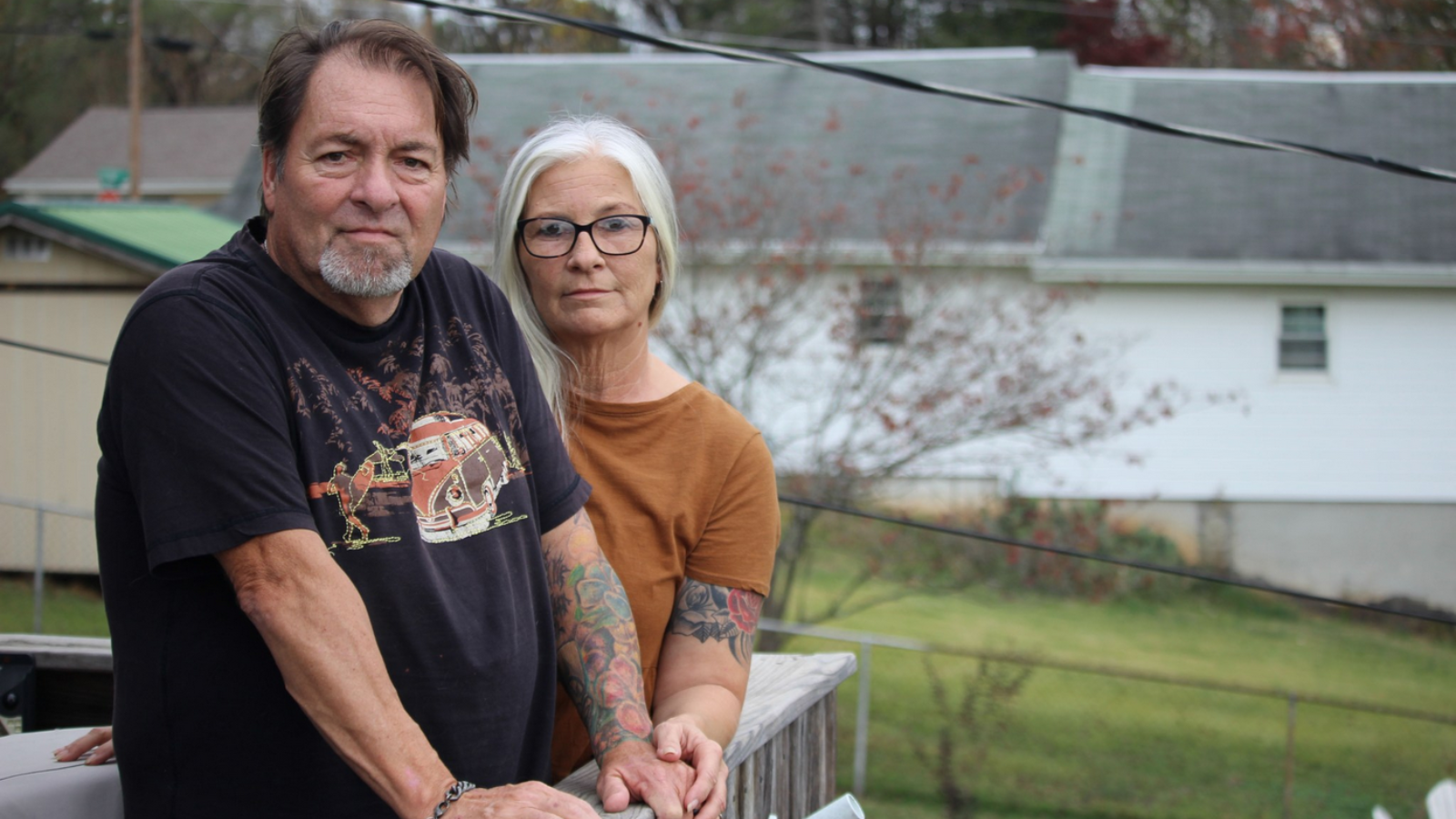Six Years Into Appalachia’s Hospital Monopoly, Patients Voice Growing Fears and Frustrations
In the heart of Appalachia, the creation of Ballad Health—a 20-hospital monopoly formed under a controversial state-sanctioned merger—was initially billed as a lifeline for rural healthcare.

By Chuck Beaton | DayMark News
In the heart of Appalachia, the creation of Ballad Health—a 20-hospital monopoly formed under a controversial state-sanctioned merger—was initially billed as a lifeline for rural healthcare. Six years later, the reality appears far less promising, as a wave of patient complaints, quality-of-care concerns, and staff dissatisfaction has engulfed the healthcare system, leaving many residents fearful of seeking care at their local hospitals.
For Jerry Qualls, the stakes were life and death. After suffering a heart attack in 2022, Qualls was rushed to Ballad Health’s Holston Valley Medical Center in Kingsport, Tennessee, where doctors reportedly gave his wife, Katherine, little hope. Defying their prognosis, Katherine fought for a transfer to a Nashville hospital, where her husband received a life-saving heart transplant. Reflecting on the ordeal, Katherine filed a formal complaint with Tennessee officials, asking, “How many families don’t know how to get a transfer and their loved one dies?”
The Rise of a Monopoly
Ballad Health emerged in 2018 after Tennessee and Virginia waived federal antitrust laws to merge two rival health systems to prevent hospital closures in the economically distressed region. This Certificate of Public Advantage (COPA) agreement created the largest state-sanctioned hospital monopoly in the country, covering 1.1 million people across a 29-county area spanning Tennessee, Virginia, Kentucky, and North Carolina.
While the merger kept hospitals open, the monopoly has failed to meet approximately three-quarters of the quality-of-care benchmarks set by the states over the past three fiscal years. Issues include high infection rates, elevated mortality, long emergency room waits, and low patient satisfaction, according to reports from the Tennessee Department of Health.
Patient Stories Paint a Grim Picture
Patients and families interviewed by KFF Health News described a healthcare system plagued by inadequate staffing and substandard care. Many now travel hours to receive treatment elsewhere, fearing Ballad hospitals will fail them in critical moments.
Brenda Getaz, a 76-year-old retired hospital official who once specialized in quality standards, exemplifies the disillusionment. After relocating to Washington County, Tennessee, she has moved to Atlanta again to avoid relying on Ballad facilities. “I’m frightened to be taken to a Ballad facility,” she said.
Tennessee State Representative Bud Hulsey, initially a supporter of the merger, has also grown skeptical. While he acknowledges positive experiences with Ballad for his family, he says constituents have shared “horror stories” of prolonged ER waits and questionable medical decisions. “The scales have far more complaints on them than accolades,” he admitted.
Ballad’s Defense Amid Criticism
Ballad Health CEO Alan Levine has dismissed many criticisms, attributing quality-of-care issues to the broader challenges hospitals face during the COVID-19 pandemic, including staffing shortages and nursing turnover. Levine insists that complaints stem from isolated medical decisions rather than systemic issues tied to the merger.
In an interview with KFF Health News, Levine pointed to Ballad’s efforts to improve quality and highlighted endorsements from local officials. However, critics argue these reassurances do little to address the monopoly’s structural problems. Notably, Levine’s remarks have been accompanied by a defensive posture, including leveraging relationships with government officials to bolster Ballad’s reputation.
Glimpses of Government Concern
While Tennessee and Virginia have renewed their approval of the monopoly annually, emails obtained through public records suggest growing unease among state officials. Tennessee Health Commissioner Ralph Alvarado privately praised a report that concluded the monopoly had caused more harm than good, calling it “totally based on data.” Yet public acknowledgment of these concerns remains sparse, and Ballad continues to pass state evaluations, partly because the grading system does not heavily weigh quality-of-care metrics.
Larry Fitzgerald, a retired consultant who monitored Tennessee's monopoly, acknowledged in hindsight that the merger had likely not benefited local residents. “I’m not going to a Ballad hospital,” Fitzgerald remarked when asked where he would seek care.
Erosion of Trust
Ballad’s reputation has suffered further damage from high-profile incidents. In one case, the CEO of Bristol Regional Medical Center resigned after performing a surgical incision despite not being a doctor. More recently, a lawsuit filed by the widow of a Tennessee sheriff alleged that understaffing and improper care at a Ballad facility led to her husband’s death.
For some families, the failures have hit tragically close to home. The family of Dr. Anton Maki Jr., a former Holston Valley physician, alleged that improper care at the hospital contributed to his death. His daughter, a surgeon in Kentucky, described her father’s treatment as a “well-oiled death machine.”
A Monopoly’s Lasting Impact
The Federal Trade Commission has cited Ballad Health as a cautionary tale while opposing similar hospital mergers elsewhere. Meanwhile, some local leaders and healthcare professionals have begun advocating for a reassessment of the monopoly’s merits.
Joe Macione, a former board member of one of Ballad’s predecessor systems, summed up the prevailing sentiment: “It has not worked. All my family knows that, if I have the time, I want to go to a highly graded hospital, either in Asheville or Knoxville.”
A Path Forward?
As Ballad Health grapples with its reputation, the voices of patients, families, and community leaders demand answers. Whether state regulators will take action to address systemic issues or continue to renew the monopoly’s mandate remains uncertain. For the residents of Appalachia, the stakes couldn’t be higher.
“Lives are on the line,” said one critic. “It’s time to stop pretending everything is fine.”
At DayMark News, we are committed to exposing the rise of authoritarianism and its threat to democracy. In a time when disinformation spreads like wildfire and democratic institutions face relentless attacks, we need your support to keep the fight alive.
Investigative journalism is our weapon against authoritarian ideologies. We delve deep to uncover the truths others would rather keep hidden, while providing actionable resources to empower individuals like you to defend our democracy.
We believe in transparency, integrity, and the power of a well-informed public. But maintaining a platform dedicated to fearless reporting and mobilization requires resources. We refuse to bow to corporate interests or compromise our mission. That's why we turn to you — our community.
Every donation, big or small, helps us continue our work. With your support, we can produce the in-depth analyses, breaking news, and educational tools needed to resist the rise of extremist movements and protect democratic values for future generations.
This fight belongs to all of us. Together, we can ensure that democracy not only survives but thrives. Please consider making a contribution today to keep DayMark News strong and independent.
Donate Now: Because Democracy Can't Defend Itself.





